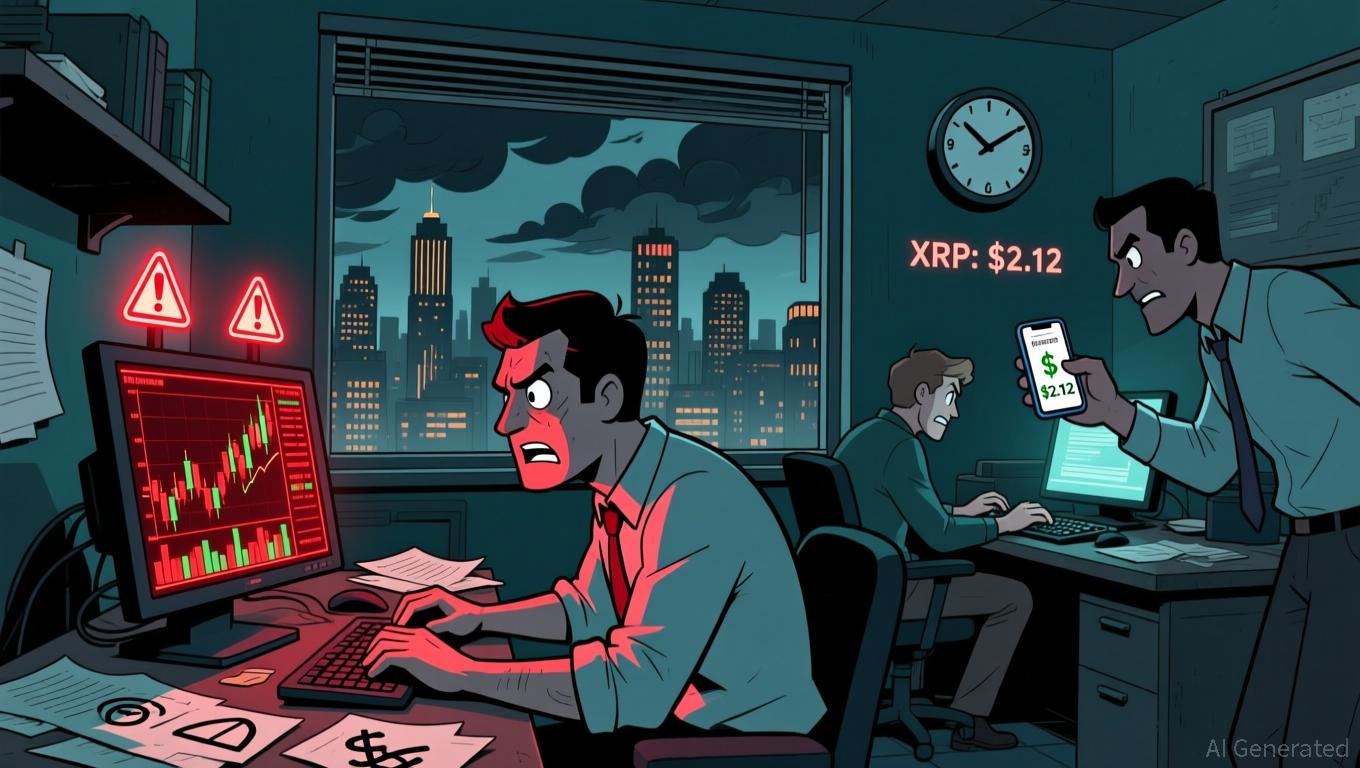Trump-Era SEC Relaxes Crypto Regulations, Raising Worries Over Investor Safety
- U.S. SEC under Trump shifts crypto focus to market stability and fiduciary standards, reducing direct oversight for 2026. - CFTC faces DeFi regulatory challenges as COAI token collapse exposes governance gaps and unclear investor protections. - BlackRock's staked Ethereum ETF filing highlights SEC's openness to crypto products amid unresolved custody and transparency issues. - Bipartisan calls for clear crypto regulatory boundaries intensify as fragmented oversight risks market integrity and investor tru
The U.S. Securities and Exchange Commission (SEC) is adjusting its regulatory strategy for cryptocurrencies, shifting its attention toward overall market stability and fiduciary responsibilities, while reducing its direct supervision of crypto asset services for 2026. This adjustment
This change signals a wider regulatory shift.
At the same time, the Commodity Futures Trading Commission (CFTC) is working to clarify its own responsibilities in overseeing decentralized finance (DeFi).
The need for regulatory clarity has become more urgent following recent DeFi setbacks.

As the SEC and CFTC continue to navigate these evolving issues, the cryptocurrency industry stands at a critical juncture. While the Trump administration’s more flexible regulatory stance has encouraged innovation, incidents like the COAI token collapse underscore the dangers of fragmented oversight. The months ahead are likely to feature intense debate over how to foster market development while ensuring investor protection—a challenge that will shape the regulatory environment for crypto in 2026 and beyond.
Disclaimer: The content of this article solely reflects the author's opinion and does not represent the platform in any capacity. This article is not intended to serve as a reference for making investment decisions.
You may also like
XRP News Update: Bitwise XRP ETF Connects Conventional Finance with Blockchain Advancements
- Bitwise's XRP ETF (ticker: XRP) launched on NYSE on November 20, 2025, marking a milestone for XRP , the third-largest cryptocurrency. - The 0.34% fee-waived ETF holds XRP directly in a trust, offering regulated access to the asset with 1.11 million tokens seeded ($2.27M value). - XRP's price dipped to $2.12 on launch amid market volatility, with analysts warning of potential decline below $1.95 support levels. - Competitive pressures grow as Grayscale and Franklin Templeton prepare XRP ETFs, while UK re

Hyperliquid Unveils HIP-3 for Open Perp Market Creation
KITE Price Fluctuations After Listing: Managing Immediate Market Swings and Understanding Institutional Reactions
- KITE token's November 2025 Binance listing triggered sharp volatility, with price dropping from $0.11 to $0.095 amid high FDV gaps and speculative retail demand. - Political ties between Trump family, Binance, and KITE token created ambiguous institutional credibility, while direct institutional investment data remains limited. - KITE stock (Kite Realty) reported Q3 losses but maintained 2.1% NOI growth and 7.4% dividend hike, contrasting with CEO's 48% stake reduction and cautious institutional buying.
Momentum ETF Soars Amid Retail Rush Fueled by AI Enthusiasm
- The Momentum ETF (MMT) surged in 2024 due to AI-driven stocks but faced a 2025 slump as tech stocks underperformed. - AI sector volatility and defensive stock outperformance in 2025 highlighted risks in momentum strategies. - Retail investors shifted to options and robo-advisors, challenging MMT's reliance on sustained momentum. - MMT's survival depends on adapting to market skepticism and diversifying beyond high-growth tech bets.